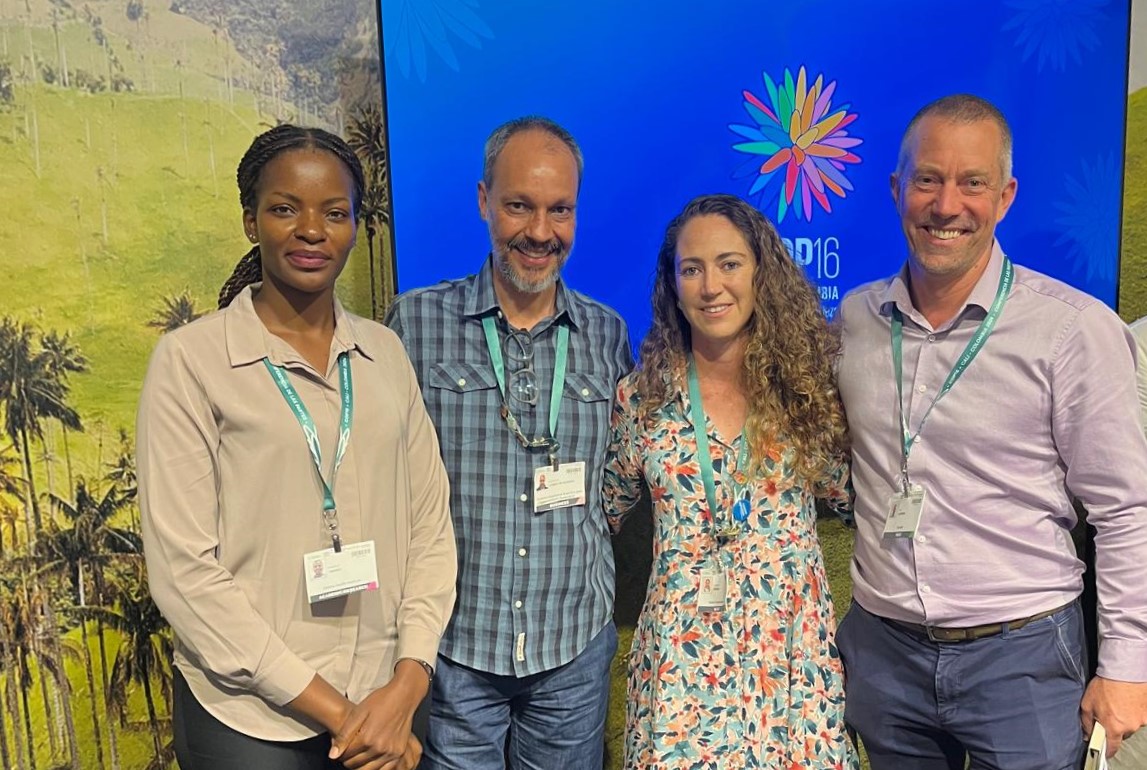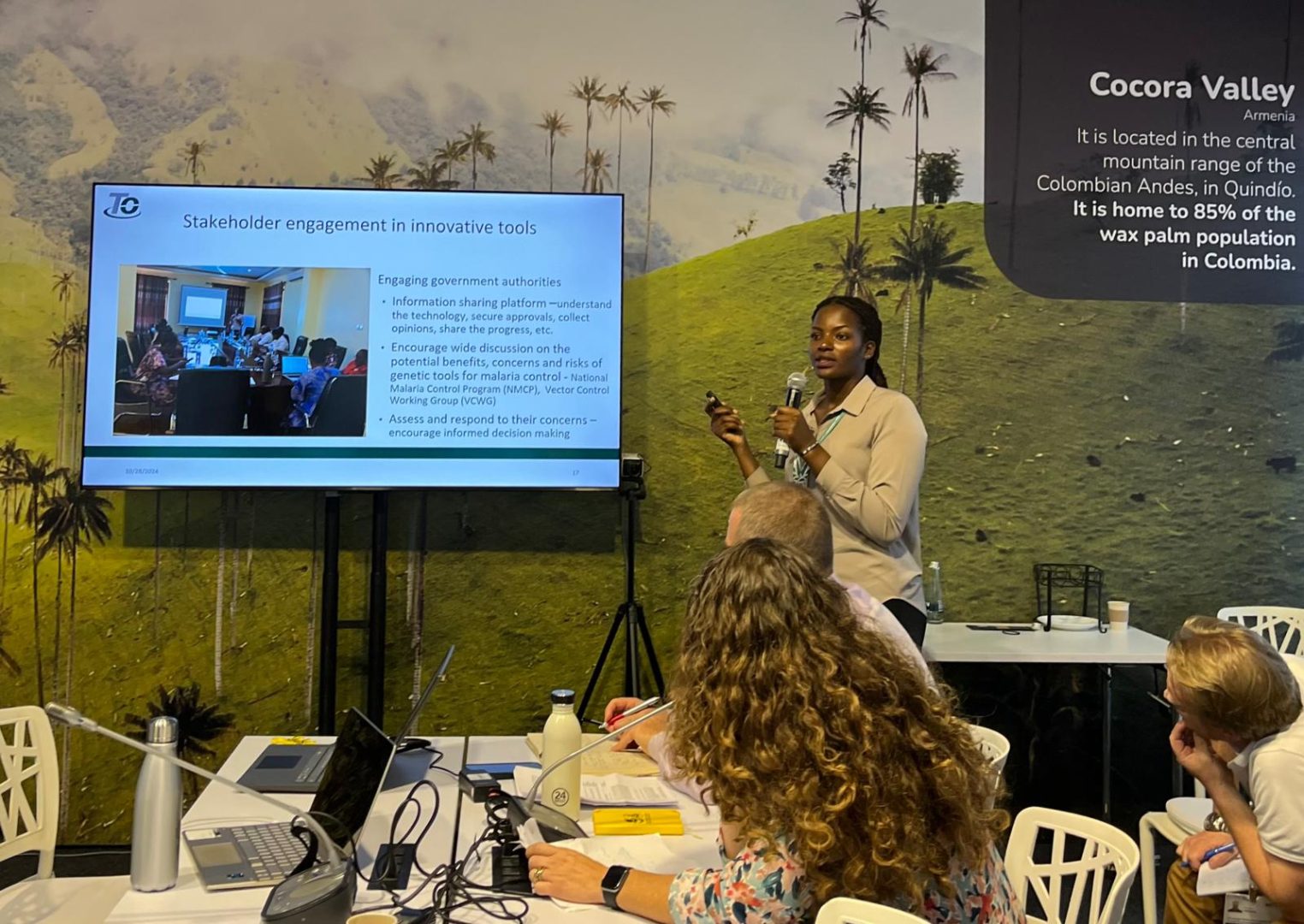This week, I had the pleasure of participating in a panel discussion held on the sidelines of CBD COP16 meetings in Cali, exploring how we can address the impact of vector-borne diseases on biodiversity and health.
Skillfully moderated by Karl Campbell, Re:wild, the session opened with an overview of the complex connections between biodiversity and health, and the innovative approaches being considered to tackle the impact of vector-borne diseases, particularly in light of growing challenges such as climate change.

Speakers and moderator of the side event: Addressing the impact of vector-borne diseases on biodiversity and health
My talk focused on the potential of genetic tools to control malaria in Africa. Malaria continues to affect millions of people worldwide, particularly in Sub-Saharan Africa. While current vector control interventions such as bed nets, indoor residual spraying, and fumigation have helped save millions of lives, they are now facing major challenges. These include insecticide resistance, climate change, urbanization, and the spread of invasive mosquito species like Anopheles stephensi. To tackle these challenges, we need innovative tools.
At Transmission Zero (T0), we are developing gene drive mosquitoes aimed at modifying malaria vector populations, making them unable to transmit the parasite. This approach is especially promising for endemic regions in Africa, as it leverages the mosquito itself to reduce transmission of the disease, and could therefore represent a scalable solution that is accessible to all, regardless of available health infrastructure.

Felista Tarimo, T0, explaining the importance of stakeholder engagement for innovative tools
The success of this technology, however, hinges on capacity-building, collaboration, transparency, and meaningful stakeholder engagement. At T0, our efforts extend beyond science alone; we actively engage with stakeholders from local communities to national authorities to ensure they understand the technology and are equipped to make informed decisions. Through open communication, we gain valuable insights and are able to address community concerns. We are also working with local communities and authorities to foster inclusion in the research process. Community members are not only informed but also actively participate in our research efforts — for instance, village residents receive training to assist with mosquito collections, participate in explaining study techniques, and gather and communicate any community grievances resulting from the ongoing research activities.
The session also included presentations by Carolina Torres Trueba, Island Conservation and Guilherme Oliveira, Instituto Tecnológico Vale (ITV). Torres Trueba emphasized the urgent need to control invasive alien species on island ecosystems to prevent further extinctions and support the restoration of these fragile ecosystems. She highlighted the critical role of new tools and technologies, from the use of remote sensing, artificial intelligence, eDNA monitoring, predictive modeling and gene drive approaches, to advance conservation efforts. Oliveira’s talk shed light on the role of Digital Sequence Information (DSI) and genomics in identifying disease vectors, with a specific focus on schistosomiasis — a debilitating neglected tropical disease. He explained how we can extract meaningful functional information from accumulated genomic data to enhance our ability to manage and control this disease.
Each of the panelists underscored the role of innovation in addressing pressing global health and biodiversity challenges. Together, we highlighted a shared commitment to preserving our planet’s biodiversity and health not only for current generations but also for the generations to come. As we face the intersecting crises of biodiversity loss and the growing impact of vector-borne diseases, the path forward depends on collaboration, knowledge-sharing, and the responsible development of new tools and technologies. Only by embracing such innovative approaches can we begin to address these challenges at the scale they demand, ensuring a resilient and healthy planet for all.
Recent posts
